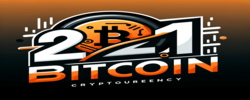A market cap surge from April still leaves HEX critics labeling the cryptocurrency a borderline Ponzi scheme.
While widely written off as a scam earlier this year, Richard Heart’s controversial HEX is fast approaching a $1 billion market cap.
According to crypto analytics site CoinMarketCap, the HEX token had a market cap of over $979 million on May 14 with a value of $0.006 at the time of writing. Prior to mid-February, the value of the coin was so small, many sites simply couldn’t measure it.

HEX is an ERC-20 token that pays holders for rewards instead of miners, essentially a crypto version of a traditional fixed deposit account. Users can lock up funds, then receive their investment plus interest when the term matures.
There are currently only nine exchanges that offer trading on HEX. On Uniswap, the Ethereum decentralized exchange, the 24-hour volume for HEX was $2.4 million, while on Hotbit it was close to $900,000. The remaining exchanges have very low liquidity, including Coinsbit, Bidesk, p2b2b and Bitcoin.com.
A sudden surge?
The question is: why this surge in value for a token that most of the crypto media has derided as worthless, if not an outright scam?
True believers on crypto Twitter point to the fact that whales have staked a lot in HEX, and the nature of the token’s rewards benefits the stakers, not the miners:
Rewarding stakers instead of miners…encourages holding with amazing interest! Facts: Price drops when people sell. Truth: People will hold if it benefits them even more than selling! Don’t listen to people calling it a scam, DYOR! Ask questions if you need! Dont miss out! #hex pic.twitter.com/WScs1Nnmuh
— Annette BTC ❤ HEX ❤ (@THEAnnette) May 11, 2020
Some users, tribal though they may be when it comes to crypto, ultimately see the token as reliable, pointing to the high returns of early stakers, “Is Hex is a good investment this early? To me, as an investor, yes. I am up 35x.”
Others simply say HEX detractors are too quick to dismiss the token as a scam instead of doing their research and listening to Heart explain himself, essentially accusing them of confirmation bias.
The HEX founder wrote on Twitter that HEX reached an all-time high price on May 14 and is looking at a $1.1 billion market cap by the end of 2020. He said that for those concerned with the current financial crisis, the token has ”basically less than 0% inflation to the staker class on average.”
Few people understand the value of shares in HEX. People will care more and more about them as we get nearer to the estimated $1.1 Billion dollar worth of HEX paid by share on BigPayDay (BPD), Nov 19th. BPD goes up as more people FreeClaim w/ #BTC and share price can only go up. pic.twitter.com/WQ8MIT5uoQ
— HEX.win price did 116x in 129 days!🚀M⬣⬣N (@HEXcrypto) May 14, 2020
Some are still on the fence. One user thinks the crypto community’s reaction to HEX could determine how future coins and innovations are received:
“I feel the crypto community has been through so many scams… when something good comes along for the holder we are blinded. Time will tell how good hex is…”
Still labeled a scam by many
HEX’s critics are legion. Peter McCormack, the host of the podcast “What Bitcoin Did,” has repeatedly referred to Heart as a fraud and HEX a scam.
As Cointelegraph has reported, others have attacked Heart for HEX’s privacy and security concerns regarding its claiming process. Vlad Costea, a writer at Bitcoin Magazine, presented a range of arguments against HEX’s purported legitimacy in January 2019, saying the cryptocurrency “resembles a Ponzi scheme” and was more like “fool’s gold”.
Heart spoke to Cointelegraph in December, admitting the HEX project uses “tactics a scam might use,” but ultimately believing the stigma was due to people in the crypto community being loyal to certain coins:
“In crypto, there’s a tribalism that every coin you buy is a world-changing amazing thing. Every coin anyone else buys is a scam by default.”



